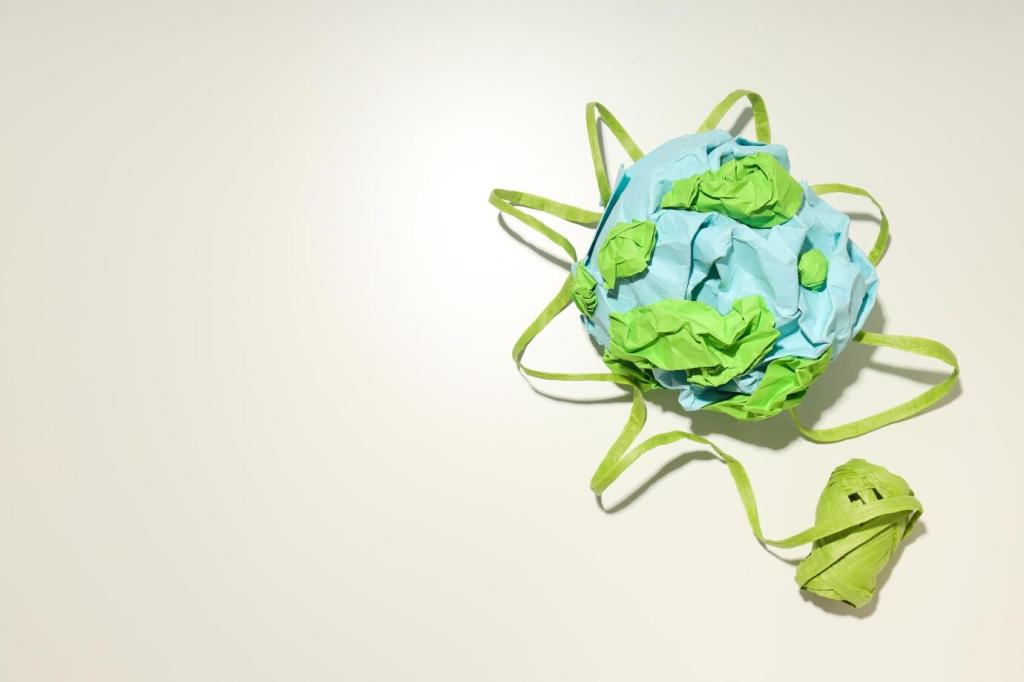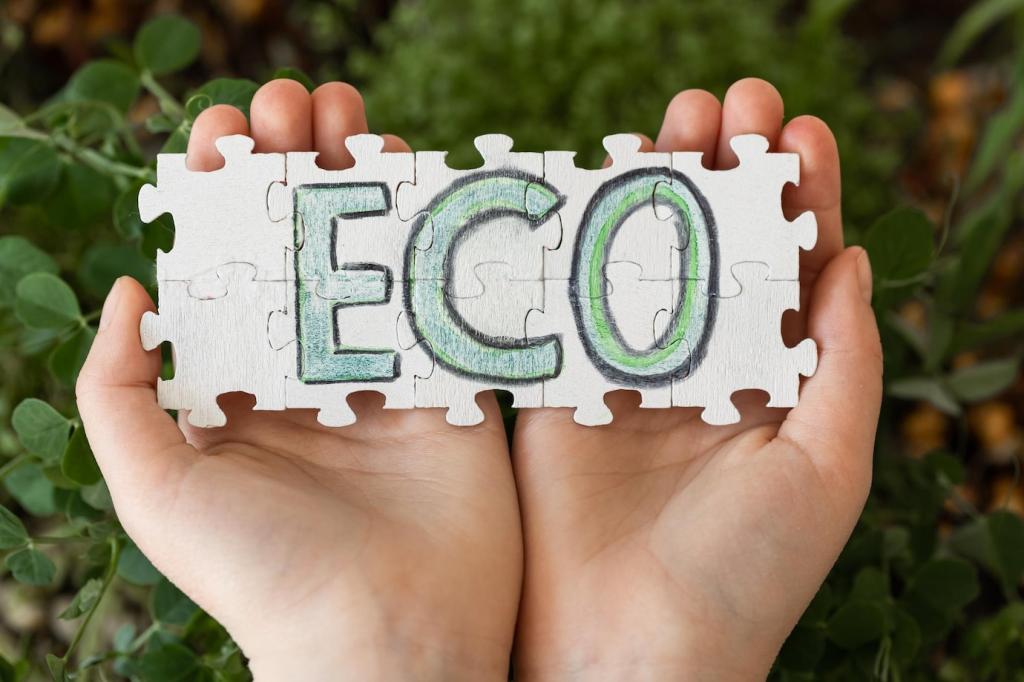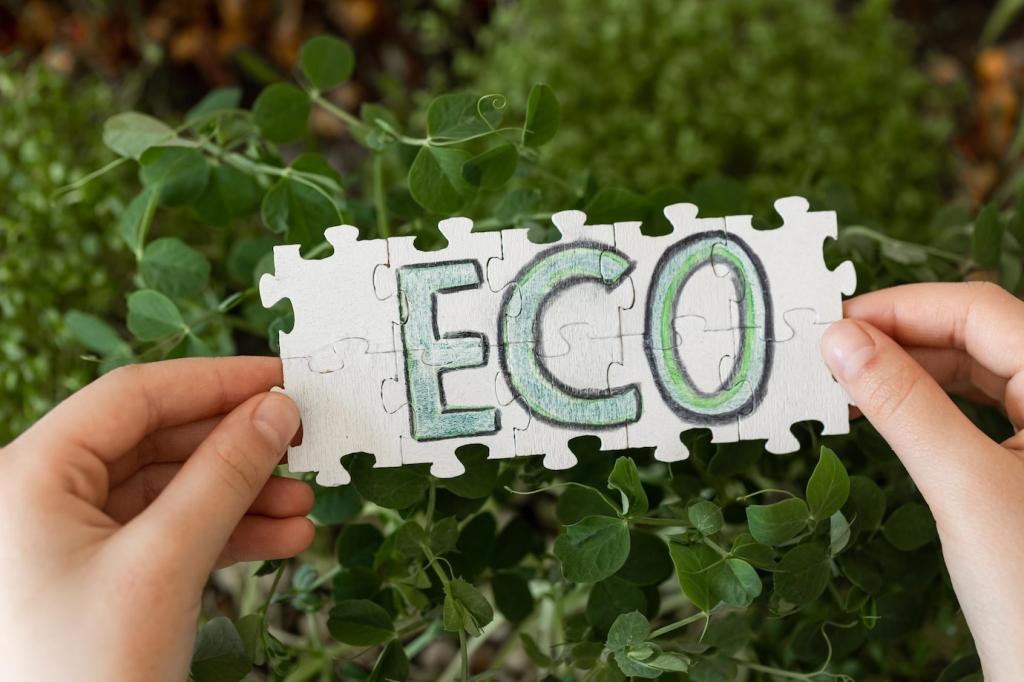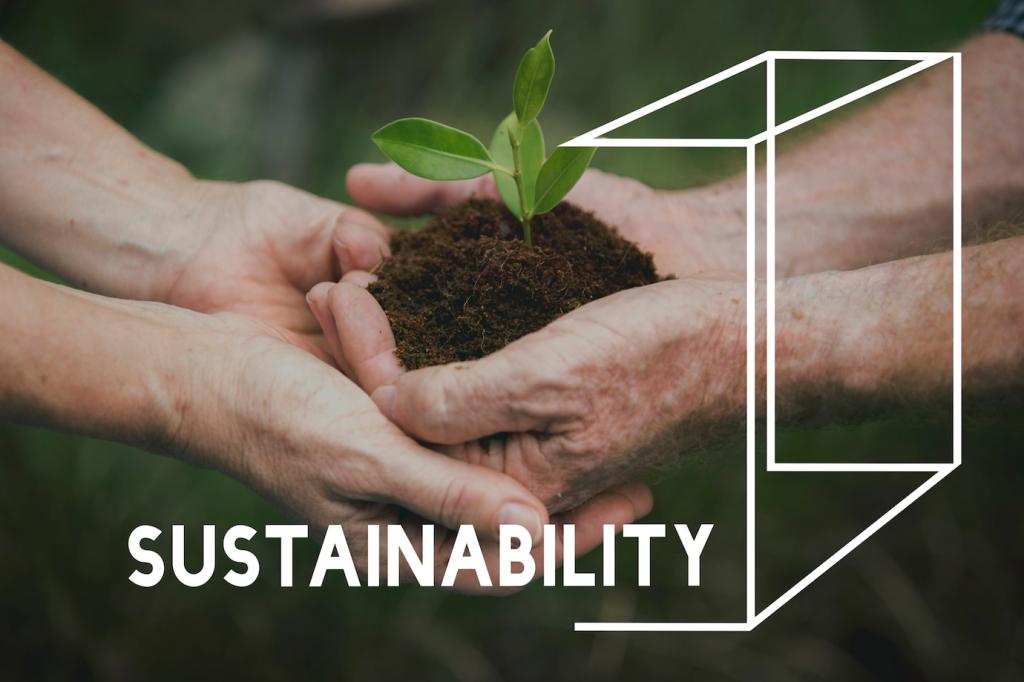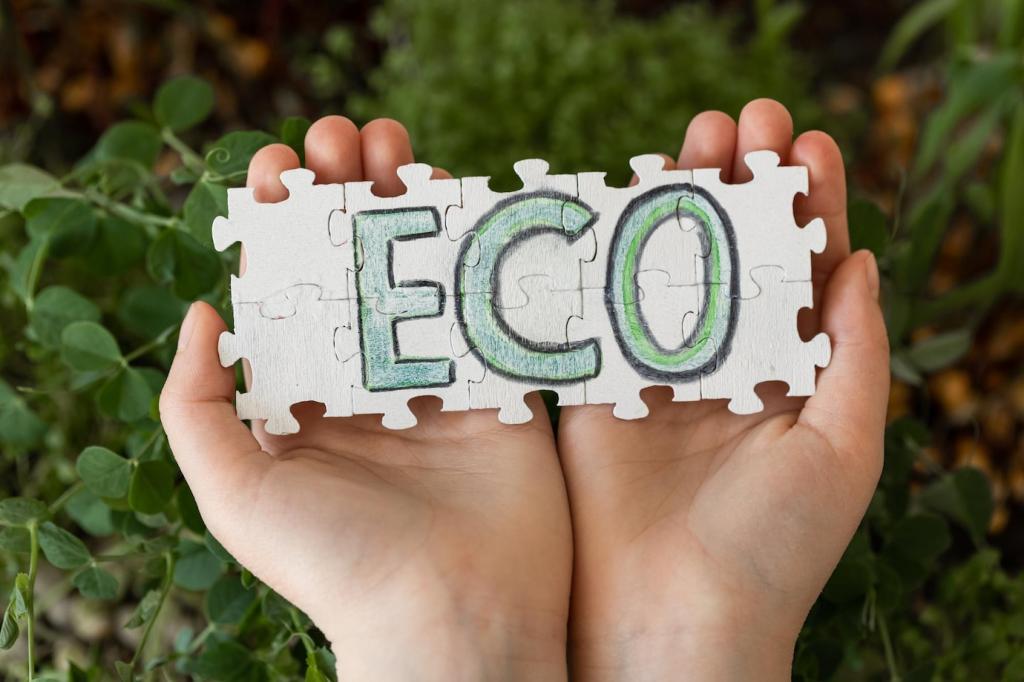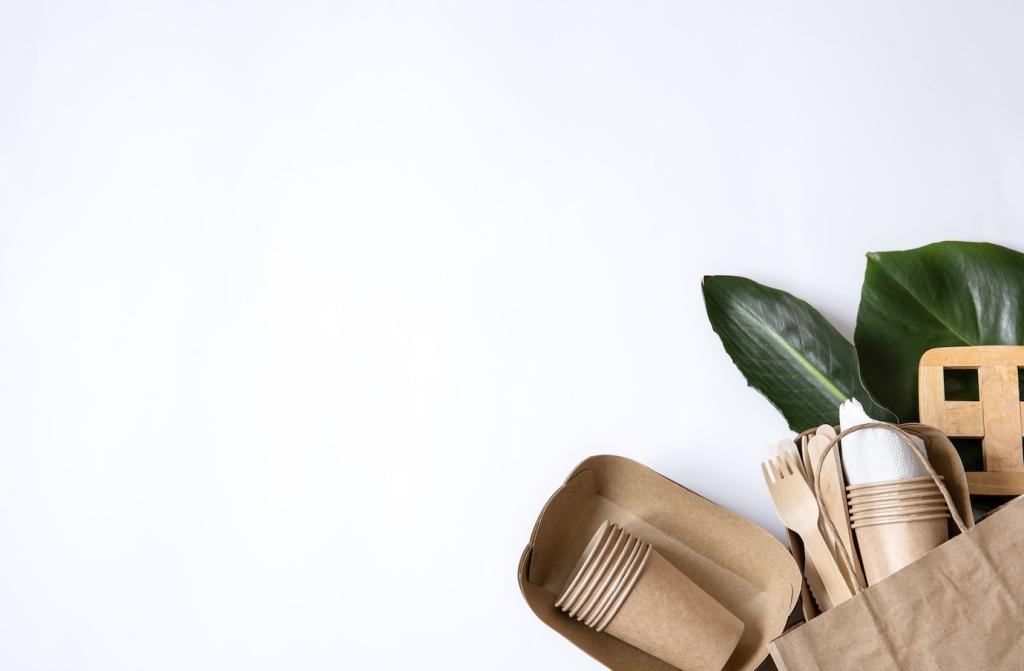Rooms Reimagined
Swap plastic brushes for wood-and-tampico scrubbers, microfiber cloths for unbleached cotton, and throwaway sponges for loofahs. Store produce in breathable jute bags. These choices make washing, wiping, and storing feel grounded, beautiful, and mercifully free of mystery fibers.
Rooms Reimagined
Choose bamboo toothbrushes, cornstarch floss picks, and refillable, compostable cotton rounds. A cork bath mat dries fast and resists mildew naturally. The entire routine feels spa-like, and your drain receives fewer microfibers each morning and night.


